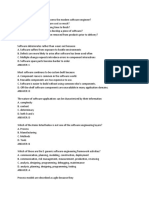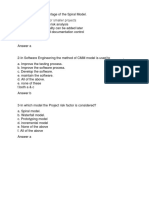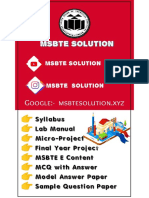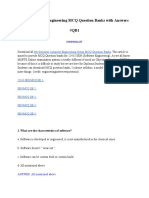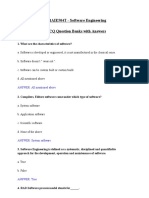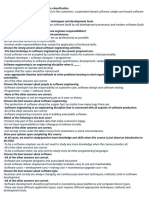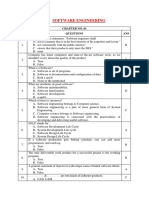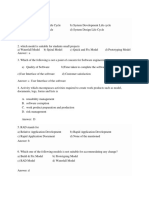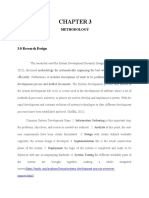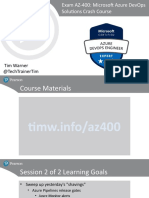0% found this document useful (0 votes)
11 views7 pagesSoftware Engineering MCQ Output
The document contains a multiple-choice quiz focused on software engineering concepts, including professional responsibility, software definitions, development models, and quality attributes. It features 40 questions covering various topics such as software processes, Agile methodologies, and requirements classification. The quiz is designed for individuals preparing for interviews or assessments in the software engineering field.
Uploaded by
vivekyadavcdacCopyright
© © All Rights Reserved
We take content rights seriously. If you suspect this is your content, claim it here.
Available Formats
Download as PDF, TXT or read online on Scribd
0% found this document useful (0 votes)
11 views7 pagesSoftware Engineering MCQ Output
The document contains a multiple-choice quiz focused on software engineering concepts, including professional responsibility, software definitions, development models, and quality attributes. It features 40 questions covering various topics such as software processes, Agile methodologies, and requirements classification. The quiz is designed for individuals preparing for interviews or assessments in the software engineering field.
Uploaded by
vivekyadavcdacCopyright
© © All Rights Reserved
We take content rights seriously. If you suspect this is your content, claim it here.
Available Formats
Download as PDF, TXT or read online on Scribd
/ 7



